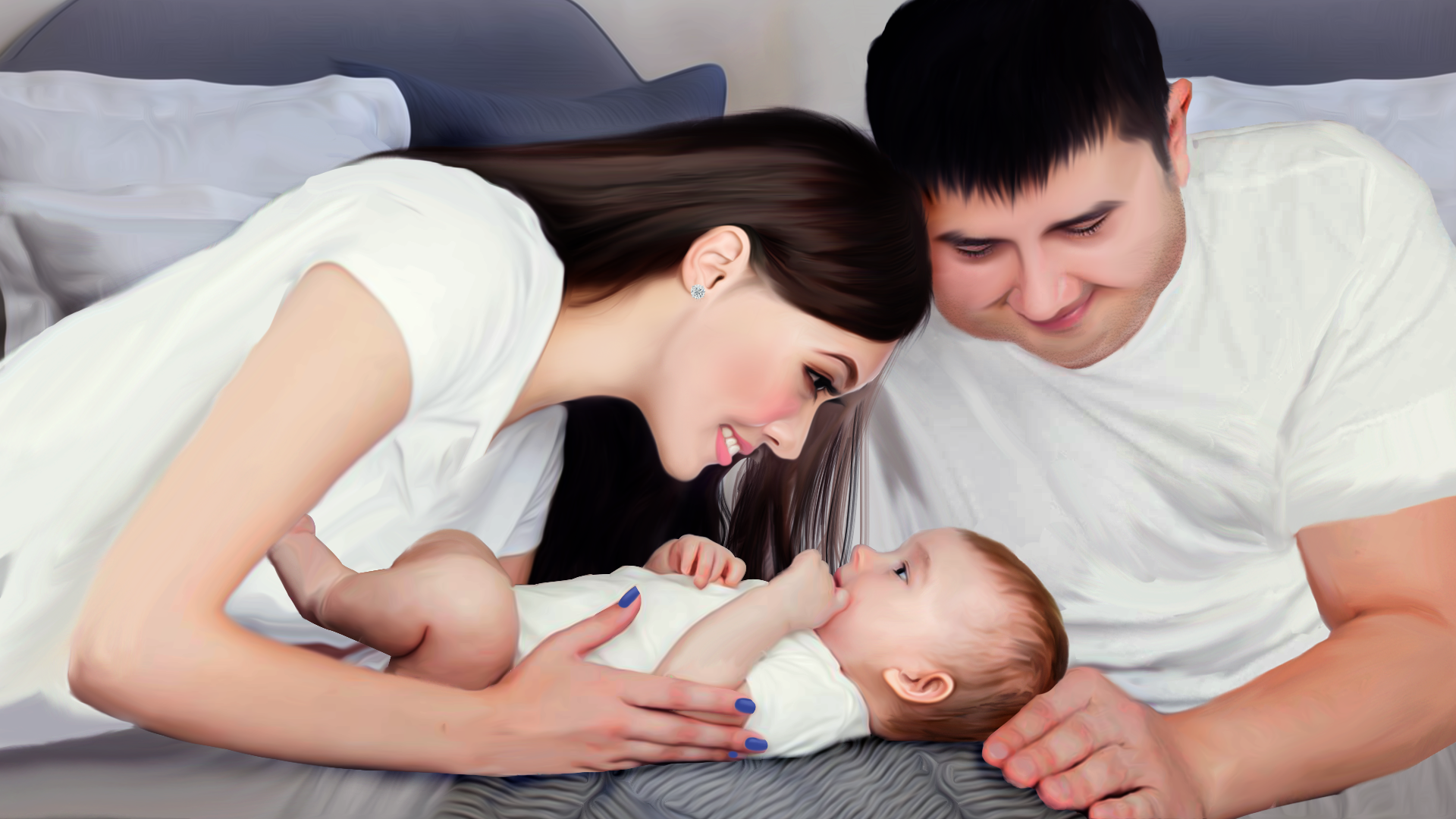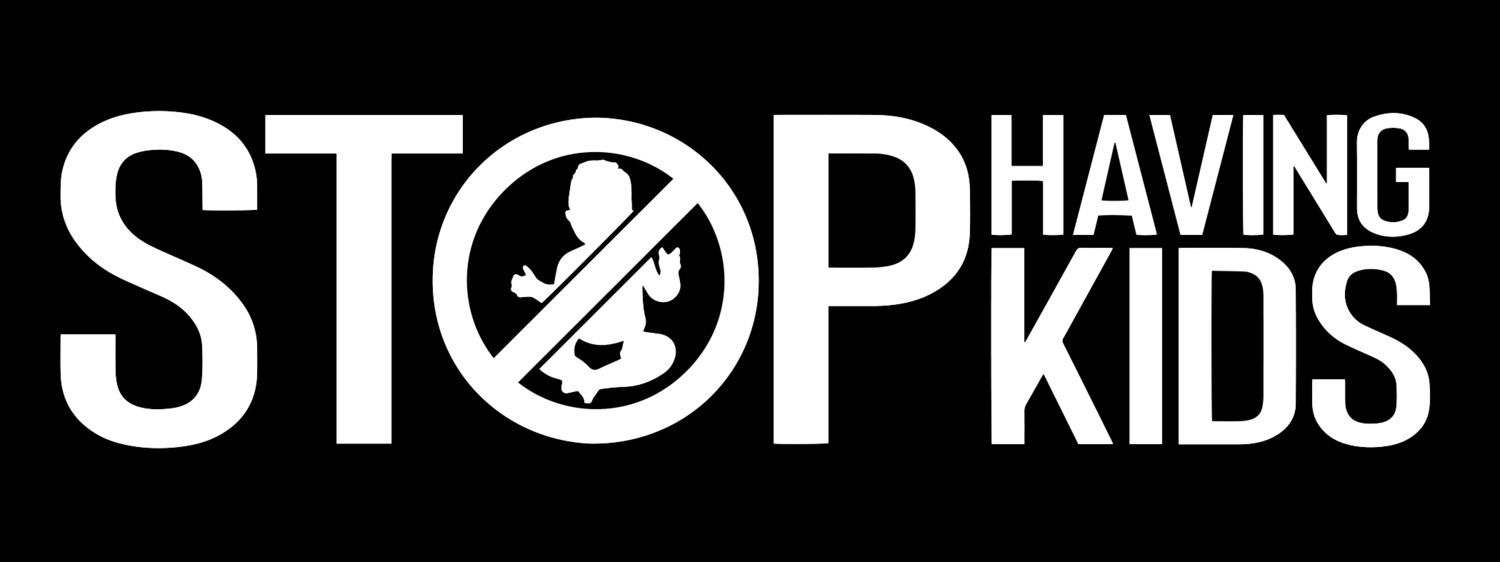
It Is Usually The Case That Humans Have Children For Reasons Rooted In Egocentrism.
Besides circumstances related to some type of force, the creation of human life is typically justified by reasons that spring from self-absorbed thinking and lack of adequate consideration for the interests of one’s own potential children, including the individuality, feelings, and future outcomes of those potential children. This is not to say there aren’t parents who have the best of intentions for their children, but rather that their intentions may not have gone far enough before they opted to procreate. When asked about why one has had or wants to have kids, people usually answer, “I want…” In most cases, humans put little to no consideration into having kids before opting to reproduce.
Those who procreate don’t acknowledge that the future person they are creating may not want to be born and may even one day wish they had never been born. At its core, voluntarily having children is a selfish act that doesn’t adequately consider the interests of future life and already existing life.
As an alternative to biological childbearing, there are ample opportunities to be involved in the lives of and help already existing children, teenagers, and adults (both humans and other animals). Some options include spending time with friends and family who have kids, babysitting, fostering, rescuing, adopting, mentoring, donating, and volunteering. Those who don’t have children are often more interested and able to pour more of themselves and their resources into individuals and causes they care about than those who have had children. This helps to promote a world that could be more interconnected, stable, and lead to higher quality of living for all.
So much of what drives people to have kids in the first place is fear and anxiousness.
Many people who may not truly want to procreate will opt to procreate anyway because of fears they have (that they could work to heal instead). They fear that without having children they would not fit in as well, or be able to get along as well with their friends, family, coworkers, communities, etc. since all cultures and societies have unfair and irrational expectations, attitudes, and behavior towards human procreation and against people who don’t conform to society’s arbitrary standards of living. Fear also comes into play with so many other things, such as fear of losing a partner (often “the one”) if there is no child to “keep” them together, fear of displeasing authority figures if they don’t follow social and religious traditions (that they often didn’t even sign up for in the first place), fear of becoming older and not having someone to care for them or keep them from being lonely, fear of never being loved, etc.
Some Of The Top Reasons Humans Choose To Have Biological Children:
Give purpose and meaning to one’s life
Haven’t considered an alternative
Have someone who will care for them when they are older
Save a failing relationship or solidify a prosperous relationship or trap someone into an ongoing relationship
Boredom with existence
Desire to relive childhood
Longing to be unconditionally loved
Meet the expectations of others
Continue one’s legacy, genetics, bloodline, family name
Create a fantasized happy family
Make holiday gatherings extra cheerful
Fit in with others who have kids
Fulfill a traditional gender role
For labor or profit potential
To be happy and content with life
To have a miniature version of themselves or someone to control and possess
To have someone who is cute and adorable
Fear of regretting not having kids
Societal Pressures
Fear of regret
People who don’t intend to have kids are often told they will regret this decision by family, friends, spouses, associates, and even strangers. Many individuals abandon themselves and give in to this pressure out of fear of regret. Others may opt to have children to avoid repeatedly dealing with these anti-individualistic pressures from others to live a certain way. The reality is that the people who remain voluntarily childfree usually don’t regret that decision. By contrast, people who have children—including those pressured into having children out of fear of regret—often do experience regret. Forcing someone into existence in order to stave off oneself from experiencing uncomfortable feelings (such as regret) is self-focused and unfair to that future child, as well as to others who exist and will be negatively impacted by that new human.
Meet the expectations of others
People bring life into existence to satisfy others’ expectations. These expectations can come from culture, society, religion, family, spouses, friends, etc. Depending on who and where we are, we are expected to follow along with a “default” way of living, which always involves having children. Truly civilized, respectful, and rights-oriented societies would allow individuality to thrive, which would mean letting people make decisions based on their own interests, desires, viewpoints, wants, needs, ethics, and limits. Modern societies dismiss the fact that having children isn’t for everyone—and that any single reason to not procreate is valid and enough on its own. Forcing an individual into existence to meet the expectations of those who are strangers to them violates the individual’s right to not come into existence—plus, it robs potential parents of making their own considerate choices.
Fit in with others who have kids
When people who don’t have kids see and know others who do have kids, they may feel left out, behind in life, unsuccessful, inferior, or less connected to others. They may think having children will be beneficial for their existing relationships, status, self-esteem, and overall life satisfaction. In their mind, having at least one child will allow them to fulfill their dream of “keeping up” with others and feel “normal.” Imposing the perpetual gamble of existence onto a new life just to feel comfortable with oneself is self-focused and inconsiderate of not only that new life, but also countless others.
Increase Life Satisfaction
Give purpose and meaning to one’s life
Some people feel their life is devoid of meaning, purpose and direction, so they procreate in an attempt to fill these voids. They think having kids will transcend them into a meaning-filled reality, making their life worthwhile and providing them a direction to follow—and a sense of purpose they’ve never experienced. Instead of creating a purpose for themselves, they create a new life to mandate them a purpose. Others may believe the meaning of life is to create more humans—and that if we aren’t actively multiplying, we aren’t living meaningful life. Meaning and purpose are important for life to feel worthwhile, but why should a new life that has no desire to exist be created for someone else’s peace of mind?
Desire to relive childhood
Adults sometimes miss being young and engaging in youth activities. Having children allows them to partake in non-adult activities and live vicariously through their young—to relive childhood in a completely new and refreshing way. Babysitting and many other childhood-related opportunities allow someone to experience these activities without driving a new individual—who may be better off never existing—into existence.
Have a mini me / someone to control
Some people desperately want someone who is an extension of themselves. They force their child to match this desired image, leaving the child little to no room for individuality, exploration, and organic development and achievement. Individuality becomes unimportant, and the parent sees their young as a representation of themselves—someone who must meet their parents’ expectations for the parents to feel satisfied with their creation. Introducing a new person into the world’s dangers and suffering just to sculpt a duplicate of oneself shows immaturity and disrespect for diversity.
Save oneself
Save a failing relationship or solidify a prosperous relationship
Many think the way to save a failing relationship is to bring a child into the picture. People think having new life they created will bring them closer to their partner, make them happier, and renew their attraction, dedication, and love for each other. Ironically, even people in thriving long-term relationships can go through deeply nerve-wracking and life-shattering events that come about after having kids, leading to drastically reduced satisfaction with both the relationship and life—and sometimes leading to separation, divorce, and contempt for one another. There’s a belief that having children will lead to personal growth, maturity, and empathy for each other, but over and over again we see that after having children, men commonly focus on their own wants and needs while women are forced to carry more burdens, duties, and emotional abuse. While not all relationships go downhill once kids are added, having kids is clearly not a solution for a troubled relationship, nor does it guarantee a good relationship will remain that way. Creating a new life in the hopes it’ll fix or solidify a relationship is both unreasonable and cruel to the individual who will now have to suffer and die.
Be unconditionally loved
Some people want someone who will love them absolutely and unconditionally, and they think that a biological child will guarantee that. They assume that just because there is a familial connection, there must be mutual interest in being together, bonding, loving each other, and maintaining a long-term relationship. They fail to acknowledge that unconditional love is far from a guarantee—and that bonds, ongoing relationships, and love must be properly created, nurtured, and maintained. Conceiving a new life in pursuit of having someone love you forever is inconsiderate of the new person who didn’t sign up to live or love.
Continue one’s legacy, genetics, bloodline, and family name
These are some of the most commonly stated reasons humans use for procreating and telling others why they should procreate. It’s simply not important and there’s no need for there to be a continuation of one’s genes, legacy, bloodline or family name. These aspects don’t matter because when you are dead, you are dead. This means that these traits about us are not as special or as great as many of us imagine them to be. Why impose existence onto someone else in this world who didn’t ask to be here just so you can get the satisfaction of continuing on in some negligible degree?
Have someone who can care for them when they are older
There’s a common fear about getting older: not being able to care for oneself. Humans want to have children so that when their bodies give out, when their minds deteriorate, and when times get tough, they know their children will feel obligated to help them out. People who have kids for this reason assume that anyone they give birth to will want to drop their life and care for them in times of need. Contrary to wishful thinking, care and assistance from one’s children often doesn’t happen. Pushing the pressures, burdens, and stresses of existence onto a new life is already a lot, but expecting one’s children to automatically be one’s caretaker is even more taxing and not something that everyone will want to do, be capable of doing, or feel okay about doing. Shooting someone else into existence for some sense of security you’ll be cared for is both selfish and unfair to the person who never volunteered.




